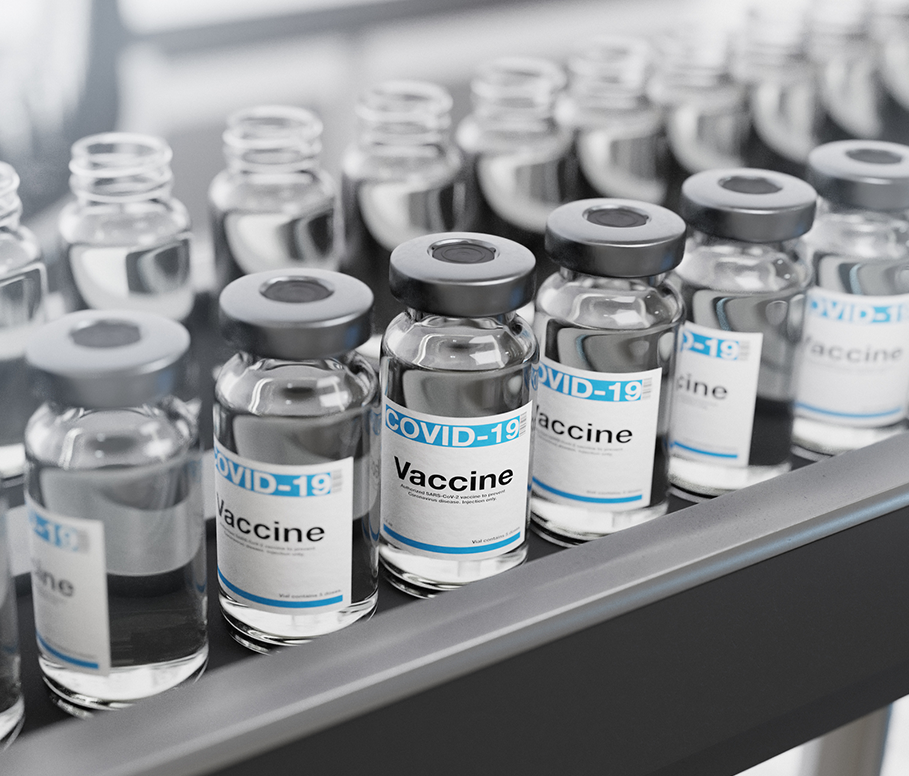Throughout the course of the COVID-19 pandemic, we have seen how intellectual property (IP) plays a pivotal role in the production of life-saving innovation. IP has opened the doors to crucial cross-sector collaborations, resulting in rapid development and manufacturing of cutting-edge vaccines, as well as distribution efforts that aim to ensure that countries around the world have the tools they need to combat this devastating pandemic.
Despite these remarkable achievements, some members of the World Trade Organization (WTO) have proposed removing IP protections on COVID-19 technologies during the duration of the pandemic. They argue waiving obligations under the WTO Agreement on the Trade-Related Aspects of Intellectual Property Rights (TRIPS) would speed up production and secure equitable access for low-income countries. However, advocates of this TRIPS waiver have yet to provide evidence that the move would increase access to COVID-19 technologies, such as vaccines and medical treatments. It would not solve the complex technical challenges to scaling up global manufacturing capacity. Additionally, undermining the very IP systems that have facilitated the unprecedented innovation we’ve seen is short-sighted and counterproductive.
Everybody shares the goal of ensuring the fastest possible manufacturing and distribution of COVID-19 vaccines. At the outset of the pandemic, the international community came together to establish the COVAX mechanism to help achieve this goal. This mechanism aims to equitably distribute 2 billion vaccine doses worldwide by the end of 2021. In order to produce these vaccines, biopharmaceutical companies, government organizations, scientists and philanthropists entered into IP-enabled partnerships to combine their resources and make groundbreaking discoveries at record speeds. In return, the WHO and other global health actors provided supplementary manufacturing support, sending millions of doses directly for global distribution.
We must work together to achieve our common goal of fighting COVID-19. Robust IP systems are required to drive the large-scale collaboration and innovation needed to secure the health of the global population.
Thanks to these powerful collaborations, COVAX has already begun distribution, with doses being distributed around the world including to India, Ghana and Cote d’lvoire. The program also posted its official first round vaccine allocation list on March 2, which reflects their mission of equity by distributing according to an agreed-upon list of countries created with input from WHO member states. The 92 poorest countries will receive the vaccines for free, and doses elsewhere will have a maximum price of $3. While these are encouraging first steps, countries, especially rich countries, need to do more to ensure COVAX succeeds.
The focus now needs to be on executing efficient partnerships among manufacturers, international organizations and countries to speed vaccine access. All parts of society need to be working together to create and implement systems to deliver life-saving vaccines and medicines to people across the globe. To bring this pandemic to an end, countries need to focus on the real barriers to faster vaccine access, such as by tackling regulatory delays and logistical challenges. Removing IP protections under these circumstances would cause chaos in the innovation ecosystem and hamper collaboration. By setting a precedent that all IP rights will be seized during a pandemic, it could make it harder for the world to replicate the fast and effective response against COVID-19.
As an international community, there is one thing we can all agree on: we cannot beat this pandemic until everyone has access to treatments and vaccines. We must universally work together to achieve this common goal in fighting COVID-19. Robust IP systems are required to drive the large-scale collaboration and innovation needed to secure the health of the global population.


